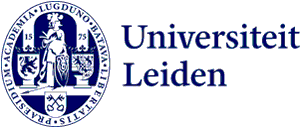Interview with Markus Davidsen on his Comenius project
Assistant professor Markus Davidsen has received the Comenius grant, with which he wishes to improve secondary education on religion. In this interview, he will tell more about the content of his project and its aims.
Can you tell more about the project and what its aims are?
'The Comenius scheme’s aim is the innovation of higher education. Those who work at universities (of applied sciences) may apply. There are three different degrees of projects: our project is of the smallest degree and runs for three semesters. The aim is to develop innovative material that can be used in teacher training programs, at both university and public school levels.'
How did this project come to be?
'Since 2018 I have been working for the Centre of Expertise on Worldview and Religion in Secondary Education (LERVO). We come together in LERVO intending to strengthen the threatened school subject ‘Religion and Worldview’ in secondary education. One way that we try to do that is by making a national curriculum. Due to stipulations in the Dutch Constitution we cannot force this new curriculum on schools. If they do decide to use it however, it would help create a stronger profile for the subject.
For this reform of secondary education to work, you also need to have teachers who can teach the school subject in this new style. That's where the idea to apply for the Comenius Project comes in. We aim to improve the teacher training so that they can teach our curriculum.'

How do you go about educating teachers for the new curriculum?
'We’re currently devising a work method, along with an analytical model, for teaching pupils how to work with primary sources, texts and rituals. The model is currently called the ‘bergmodel’ (mountain model), but will become a spiral in the future. We want to take pupils through four steps when they are working with a primary source. First, you situate it in its context. The next step is an interpretation. You look at what's the meaning, the author, the function. After you can relate it to, for example, rituals or texts within the same tradition.
Our goal is to inject the methodology used in the study of religion into the curriculum. Analytical models are just one of the things we are working on. We are also making a collection of useful sources, as many teachers experience difficulties with using primary materials. They don't know where to look, or where to find them, so we're helping them with that.
The concrete goal is that we work out a practical way of analysing religious texts, and rituals. By making the school subject more solid, and more anchored in the study of religion rather than theology or philosophy or the idiosyncratic interests of the individual teacher, we can help the school subject survive. '
Due to the selected cookie settings, we cannot show this video here.
Watch the video on the original website or